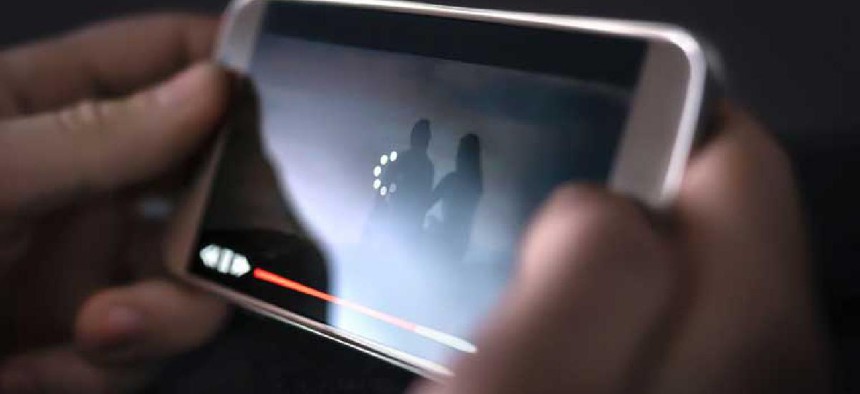FCC app measures mobile broadband access

To get better data on high-speed broadband access, the Federal Communications Commission is asking the public to download and run its Speed Test app on their mobile and home wireless devices.
As part of its plan to collect more reliable and comprehensive data on high-speed broadband access across the U.S., the Federal Communications Commission is asking the public to download and run its Speed Test app on their mobile and home wireless devices. The crowdsourcing app shows users how well their mobile or Wi-Fi network performs and then encrypts the data and forwards it to the FCC -- while protecting the privacy and confidentiality of program volunteers, FCC officials said.
For connections to the internet entirely through cellular networks, the app measures upload and download speeds, latency of connections, packet loss and jitter. For Wi-Fi networks, where performance is a result of both the Wi-Fi access point and the internet service provider’s service, the results “may not reflect the performance attainable on the fixed Internet service provider’s network,” according to the FCC’s tip sheet.
Besides the wireless access data, the FCC collects information about the handset type, its operating system, the time, date and GPS coordinates from where the test was run along with the results of active tests already recoded on the device. The data the FCC gathers will be uploaded to the cloud and made available for post-processing, including a technical privacy analysis for any publicly released dataset, FCC officials said.
The test data will support the FCC’s efforts to collect more accurate and granular broadband deployment data and will give consumers a way to challenge provider-submitted broadband coverage maps. The anonymized data is freely available through the Measuring Broadband America’s study of mobile data to consumers, academics, policymakers and any other interested parties.
The Speed Test app will run continuously in the background, periodically performing measurements. The Android app will frequently download updates to maintain the most current schedule of automated tests that it should execute. On iPhones, the app will update as long as automatic updates are enabled. While the application is free to download, carrier charges may apply, the FCC warned.
“To close the gap between digital haves and have nots, we are working to build a comprehensive, user-friendly dataset on broadband availability. Expanding the base of consumers who use the FCC Speed Test app will enable us to provide improved coverage information to the public and add to the measurement tools we’re developing to show where broadband is truly available throughout the United States,” Acting Chairwoman Jessica Rosenworcel said.
The Speed Test app is the latest FCC initiative to better identify gaps in high-speed internet services. In a Feb. 17 presentation, FCC’s Jean Kiddo, chair of the newly formed Broadband Data Task Force, said the FCC aims to collect more and better data.
The commission has issued a request for information for the creation of the broadband serviceable location fabric -- a common dataset of all U.S. locations where fixed broadband internet access service can be installed -- that will form the foundation for the location- or address-based reporting.
Information on minimum service speeds, maximum buffer sizes for fixed service along with infrastructure and drive-test data will give the FCC accurate broadband data, she said.
“With these new data and tools, the Commission will produce vastly more granular and accurate broadband deployment maps, which in turn will allow the Commission to target Universal Service Funding more precisely and produce better data for Commission reports and analyses,” Kiddoo said.
More information about the app is available on the FCC website.






